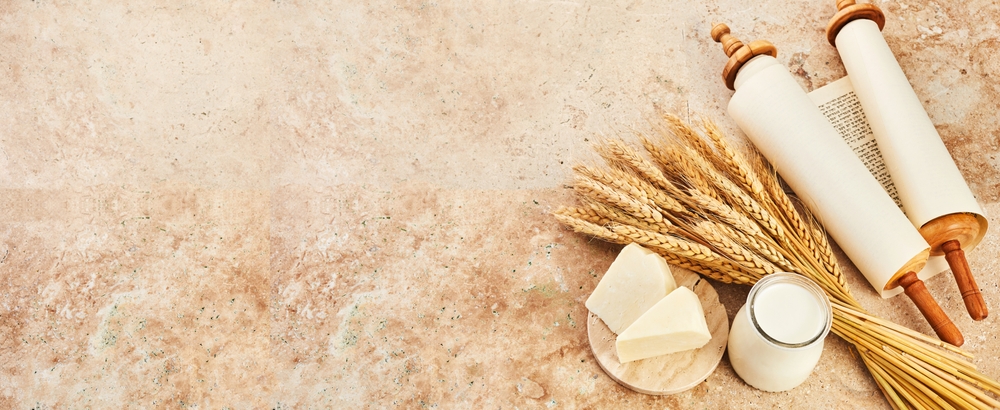Shavuot Rosh Chodesh Sivan: Harvesting Hope and Resilience on Shavuot

I recently learned of the research of Drs. Marshall Duke and Robyn Fivush about the power of knowing our family history, and this discovery could not have come at a better time.
According to Duke and Fivush, children who know stories about their family’s past, particularly ones that oscillate between challenge and triumph, have a higher self-esteem and are more resilient 1. The reason for these positive outcomes is because people have what Duke and Fivush call an “intergenerational self,” which is an identity that extends beyond their physical existence. A strong intergenerational self-identity, knowing about the ups and downs of our familial past and feeling rooted in that story, tends to lead greater “personal strength and moral guidance” along with “increased resilience, better adjustment, and improved chances of good clinical and educational outcomes.” 2
As we mark Rosh Chodesh Sivan, we are a few days from Shavuot, a holiday that, like Passover, invites us into our Jewish intergenerational selves. This is readily apparent from the Biblical agricultural origins and practices of the holiday.
Shavuot in the Torah was a celebration of the spring harvest. Israelites would travel from all over the land to bring the first fruits of their fields as an offering in the Temple. When they would do so, the Book of Deuteronomy tells us they were to recite a very specific liturgical formula:
My father was a fugitive Aramean. He went down to Egypt with meager numbers and sojourned there; but there he became a great and very populous nation. The Egyptians dealt harshly with us and oppressed us; they imposed heavy labor upon us. We cried to God, the God of our ancestors, and God heard our plea and saw our plight, our misery, and our oppression. God freed us from Egypt by a mighty hand, by an outstretched arm and awesome power, and by signs and portents, bringing us to this place and giving us this land, a land flowing with milk and honey. I now bring the first fruits of the soil which You, God, have given me. (Deuteronomy 26:5-10)
This passage is the same one the rabbis of old made the central passage of the Passover Seder. It tells a powerful oscillating story of the Jewish past. Implicitly, it acknowledges that though the moment of recitation is one of arrival and celebration, we don’t know what is coming, whether the harvest will be sufficient to carry us through to the next harvest or what inevitable challenge lies ahead. But the story is told as our own — as a personal family event of descent and redemption that makes this moment of arrival and abundance possible. With each telling, the story becomes more fully our own and with it, the possibility of summoning the resources to relive it in our own life.
The rabbis transformed this story into the giving of Torah. Instead of arriving in a land flowing with milk and honey, the redemption is at Sinai with the reception of Torah. The bounty that is possible comes not from tilling fields and harvesting produce but studying Torah, living by its ever emerging principles, and being transformed by the ongoing encounter with God. This evolution of the holiday reinforces the power of the Biblical declaration by making the purpose of Shavuot to live more fully within our Jewish familial narrative of Torah.
The result is a holiday that in these tumultuous times, the most concerning and challenging for Jews in recent memory, offers us precisely what so many of us need — practices for digging deeper wells of resilience and hope.

1 The New York Times “The Stories that Bind Us”
2 The Huffington Post, “The Stories That Bind Us: What Are the Twenty Questions?”

